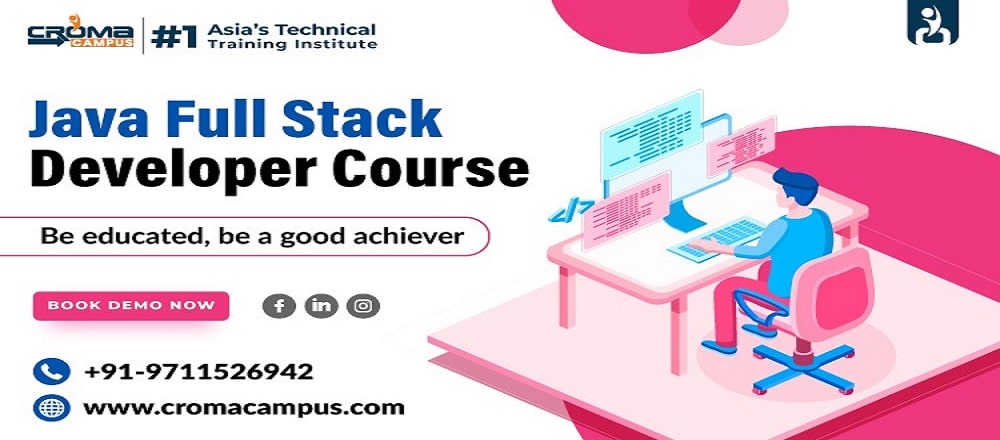With the onset of the Internet age, most web developers today choose to become a full-stack developers. In the 1970s or 80s, it was common for a single person to develop a software program from start to end. As there weren’t many layers of complexity lying between the computer’s hardware and the programmer. However, with time the application became quite complicated. Thus, dividing programmers based on a different stack. Such as Networks, the front end, databases, and servers. In recent years, the full-stack developer has significantly become more critical. Employers understand their specialty. Full-stack developers generally have a special knack for building together multiple tech tiers into a neatly packaged application.
Essentials for a Full Stack Java Developer
Of course, becoming a full-stack developer isn’t an easy task. However, Java Full Stack Developer Online Training can make the learning journey easier for you. You just need to master some critical skills to efficiently work on any platform. However, every learner’s path is usually different depending on their preexisting experience and their skill set.
So, what does it take to become a Java full-stack developer? Below, we can help you identify the essential skills for Java Full Stack Developer.
Front-end design ability
Full-stack Java developers generally have an in-depth understanding of how to design front-end frameworks. This ability mainly includes combining creative design elements with functional coding techniques. This especially happens to display your creativity to users when they interact with your web applications. Moreover, displaying your knowledge of front-end frameworks on your resume may help stand high from other candidates during the application process. Full-stack developers generally use the front-end frameworks such as React and Angular.
Testing ability
Java developers generally create unit and integration tests during full-stack programming projects. In a unit test, developers evaluate small units of code to identify their usability within the entire program. In an integration test, developers usually combine units of code to understand how they function together. Employers generally prefer candidates who have proven ability to create effective unit tests for the applications they are developing. Knowledge of specific unit testing frameworks such as Mokito or Junit can also help you excel in tasks related to testing creation.
Ability to combine microservices
Many Java-based web applications use service-oriented architecture which allows developers to integrate microservices. Microservices are basically the functional components of a service-oriented program. Employers may prefer candidates who understand microservices and know well enough how to implement them within applications. Learning the Spring Framework can also assist you in displaying your ability to use microservices. Mainly because its functionality directly relates to microservice development.
Ability to efficiently use tools
Tools are a necessary component of full-stack development. As they allow developers to collaborate, test, and also debug their codes. These tools may further help developers increase their efficiency and work with multiple web technologies. DevOps tools such as Docker, Ansible, and AWS help developers build applications quickly by helping them plan, test and lastly monitor their code. Integrated development environments (IDEs) such as Eclipse, NetBeans, and IntelliJ IDEA also help developers to integrate the three layers of the stack into one environment.
Ability to use APIs and libraries
Application programming interfaces (APIs) allow developers to combine preexisting pieces of code into applications. These preexisting pieces of code generally come from libraries created by other developers on the internet. Full-stack Java developers have complete knowledge of libraries and understand how to develop APIs within the code they write.
Ability to work together in teams
Technical abilities are certainly very important. However, many Javas full-stack development positions generally require you to work in collaborative teams to complete large-scale projects. The capacity to lead groups, follow directions and identify team members’ specialized abilities may help you achieve production expectations and build better web applications. You can also display this skill on your resume and in interviews through descriptions of your earlier work experience.
Conclusion
After going through all the essential skills, you must have got an idea about the essentials for Java Full Stack Developer. Though all these skills require proper practice and expertise. You can even go through Java Full Stack Training in Gurgaon for building an in-depth understanding of each technicality. Moreover, full-stack development is one such profile that will always host a plethora of job opportunities for you. Thus, you will always be in demand and never out of opportunities.





